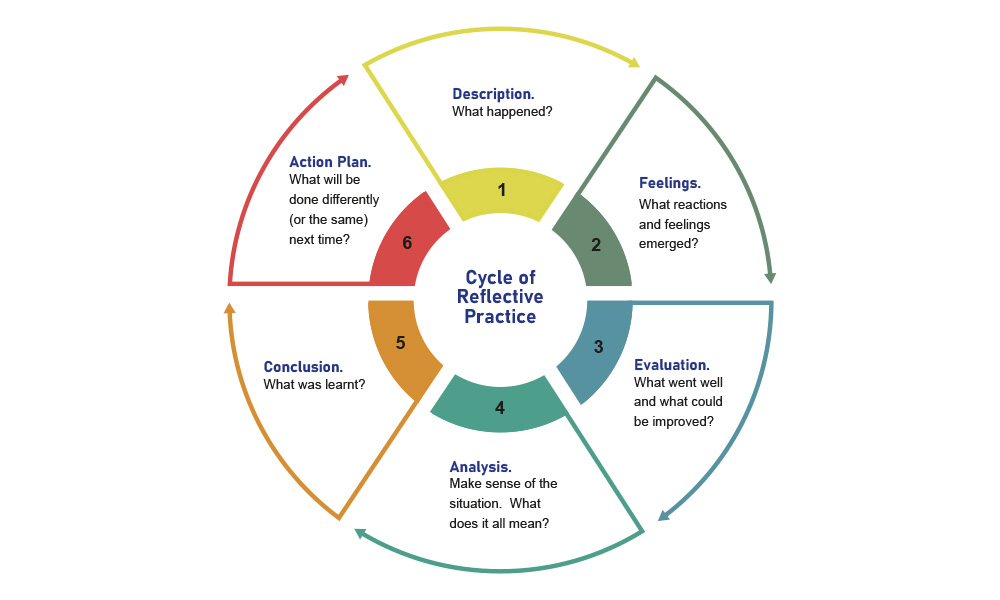The value of "reflective practitioners"
Reflective Practice
Engaging with 'reflective practice' is valuable in all aspects of your life, not just your studying. In fact, by applying reflective practice to both your personal and professional lives, helps you to achieve balance in both areas and help you to look after your wellbeing, to achieve more... to be successful and happy!
Reflective practice is a simple process but requires you to make time for it in your life. It's not something you can do just once - Reflective practice requires a long-term, consistent effort to take time for yourself to reflect on your actions. The good news is that reflective practice can take as long or as little time as you have - from 5 minutes to hours. It all depends on what you're reflecting on, of course!
There are many models you can use to help you be reflective. One of the more common models is Gibbs' Reflective Cycle but it generally consists of 6 steps.

- Description - What happened?
- Feelings - What reactions and feelings did you have about the situation?
- Evaluation - What went well and what could be improved?
- Analysis - What does it all mean? What has the situation revealed?
- Conclusion - What have you learned from the analysis?
- Action Plan - What will you do the same or differently next time?
Try it yourself!
Think of a situation you have experienced recently -personal or professional... it could be a situation that was positive, negative, or a mix of the two. Try applying this model and ask yourself the questions from the 6 steps.
What has that process revealed to you? Has it helped you consider how you'd approach a similar situation in future?